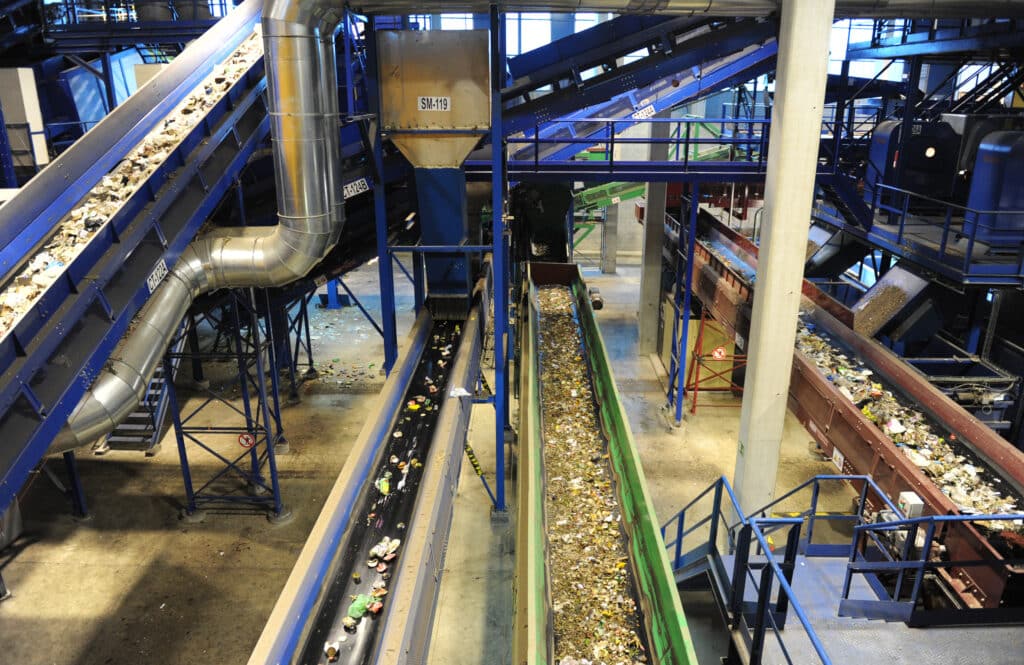An analysis of 23 November 2021 shows that for the first time in 22 years, during 14 days, the regulatory limit of dioxin emissions was exceeded
The Maresme Waste Consortium has opened a disciplinary case against the concessionaire of the Maresme Integral Centre for Waste Recovery, UTE TEM (Maresme Ecological Treatments), for non-compliance with the regulatory dioxin emission limits. The quarterly analysis of 23 November 2021 by the environmental control entity of the Catalan Government, Bureau Veritas, showed that dioxin emissions were 0.3ng/Nm3 (the limit is 0.1ng/Nm3) in one of the centre’s two incineration lines. Since its introduction, the permitted emission limit has never been breached, and the cause was a deterioration of the incinerator bag filters.
According to the concession contract, non-compliance with the dioxin emission limit value is considered a serious offence. For this reason, the proceedings opened by the Maresme Waste Consortium will allow UTE TEM to be sanctioned with a fine of 6,001 euros, a minimum financial penalty in the range of serious offences, given that it was an isolated and technically singular event, and that there was no willfulness or precedent.
“The environmental and health impact of this non-compliance is imperceptible”, says the director of the Maresme Waste Consortium, Carles Salesa. According to the emission factors published by the European Commission, exceeding the dioxin emission limit during these 14 days is equivalent to 8.6% of the annual dioxin emissions from domestic barbecue charcoal (15 micrograms/t) used by the population of Maresme and Vallès Oriental, the equivalent population served by the Waste Treatment Plant.
In recent weeks, UTE TEM has changed the incinerator sleeve filters for ones made of 100% Teflon material, a fabric that is inert to temperature, which will make it possible to continue applying a new system to improve the elimination of the acid gases produced in waste incineration.
A system improvement with an unexpected consequence
In autumn 2020, UTE TEM changed the semi-dry gas treatment system to a dry system, a more efficient process that significantly reduces the polluting gases generated in the municipal solid waste recovery process. In practice, working with a dry system means that the gases reach the bag filters at 190ºC instead of 150ºC. According to the filter manufacturer, this temperature increase was not supposed to have any effect on the fabric of the sleeves, made of polyamide P84 and Teflon. However, after a visual inspection on 30 November 2021, it could be detected that the temperature increase had actually caused the sleeve filters to suffer oxidation; a fact that occurs at certain temperatures and in a progressive manner. At that time, the oxidised sleeves were replaced with new ones.
The oxidation of the sleeves meant that for 14 days (from the time that UTE TEM noticed a small increase in particles on 17 November until the oxidation of the sleeves was detected and the sleeves were replaced on 30 November) the filters did not act with maximum efficiency and dioxins were emitted at a level of 0.3ng/Nm3 (the limit is 0.1ng/Nm3) in one of the centre’s two incineration lines. This was shown by the analysis that the environmental control entity of the Catalan Government, Bureau Veritas, carries out on a quarterly basis, as established by the regulations.
In this case, Bureau Veritas collected the sample on 23 November 2021 and verbally communicated the result of the report to UTE TEM on 15 December 2021, when the deteriorated P84 polyamide sleeves had already been replaced with new sleeves of the same type, and the delivery of the supply of sleeves with 100% Teflon technology (a type of fabric that does not oxidise and therefore continues to filter dioxins at high temperatures) was expected as a definitive solution.
The problem with the filter bags is now solved. The monitoring and the counter-analyses requested by the Maresme Waste Consortium and carried out by Bureau Veritas have since confirmed the proper functioning of the new sleeves and the emission of dioxins below the permitted limit: a first counter-analysis was carried out on 21 December 2021 with a result of 0.03ng/Nm3 and a second on 28 December 2021 with a result of 0.02ng/Nm3.

Maresme Waste Treatment Plant/ Marga Cruz



